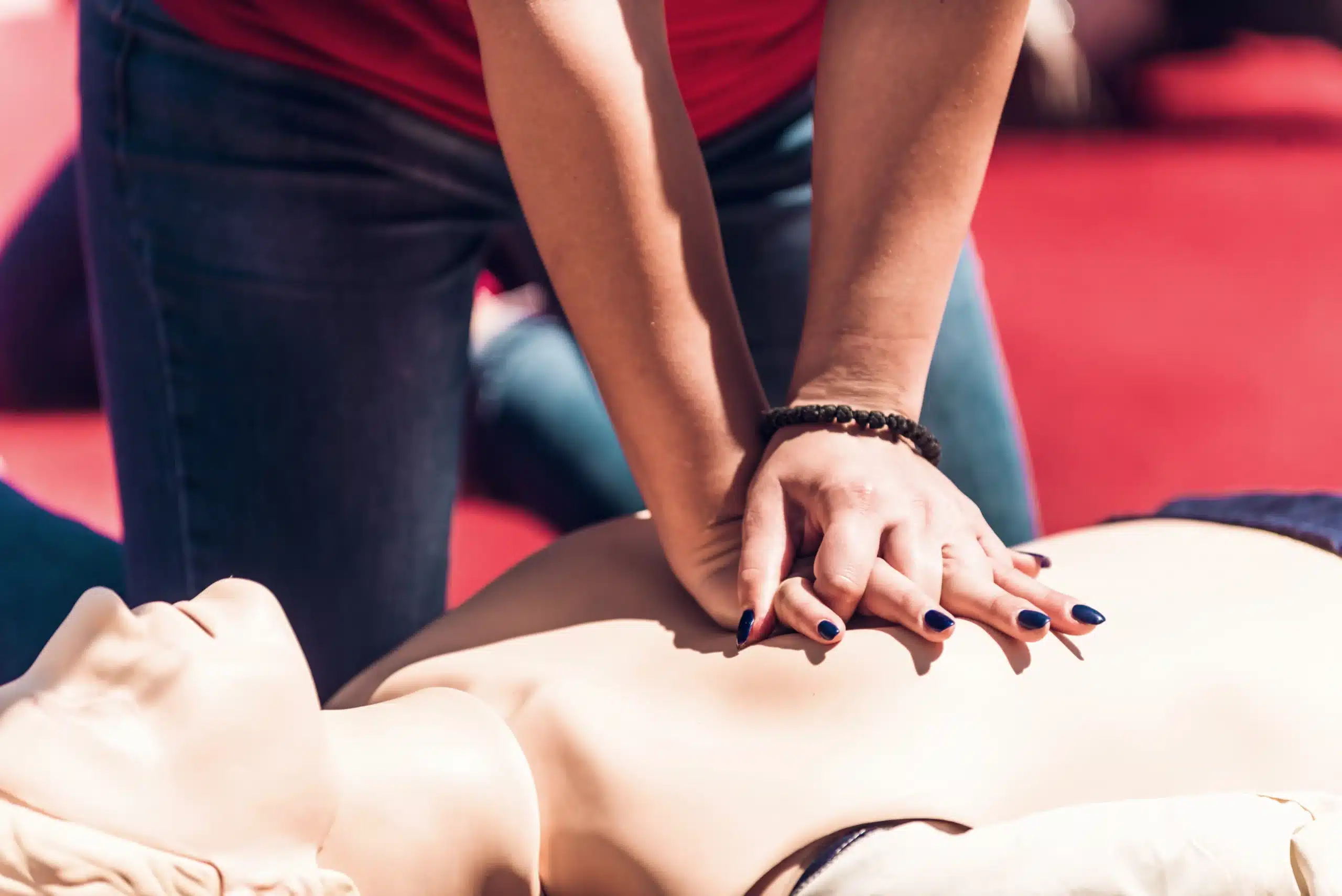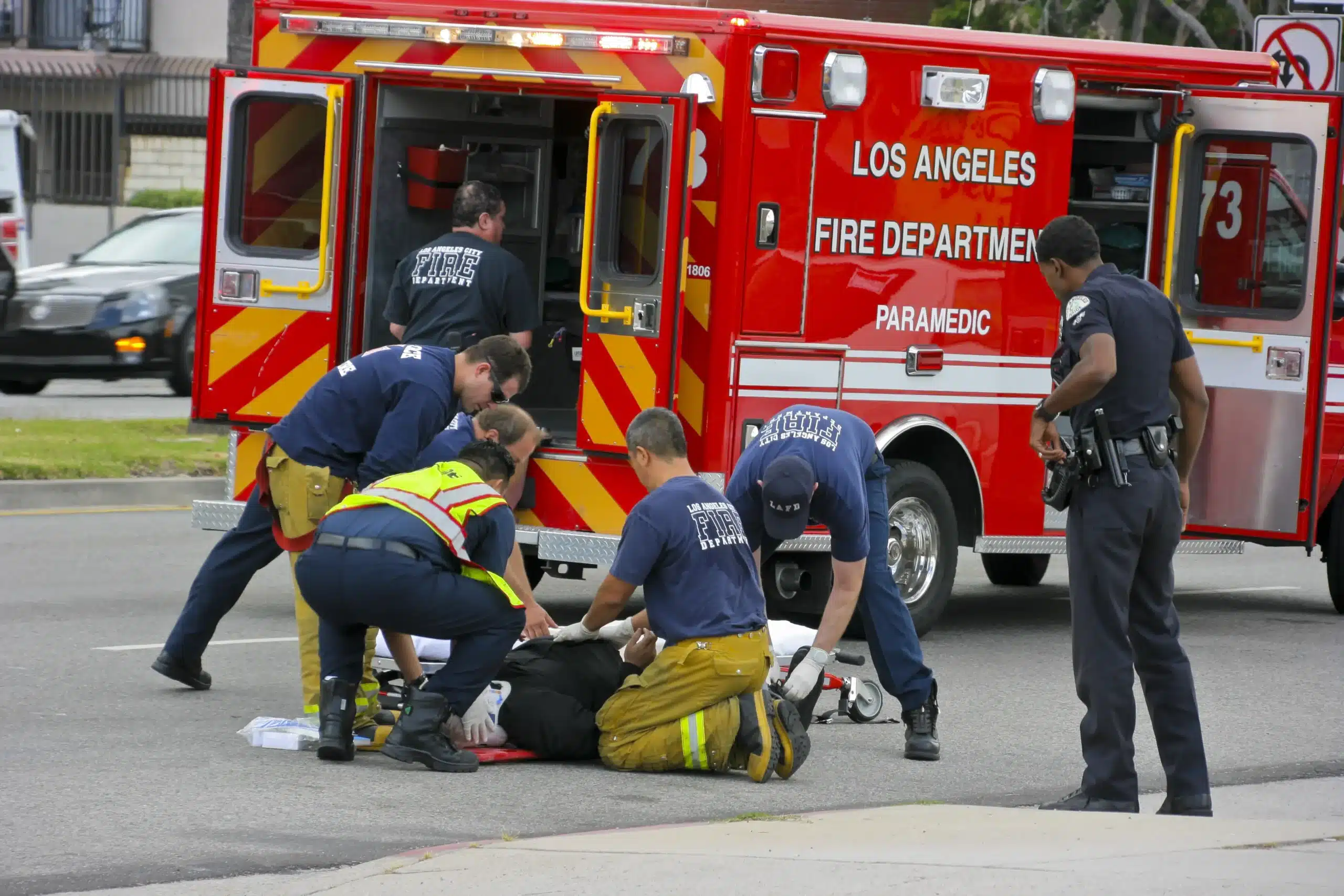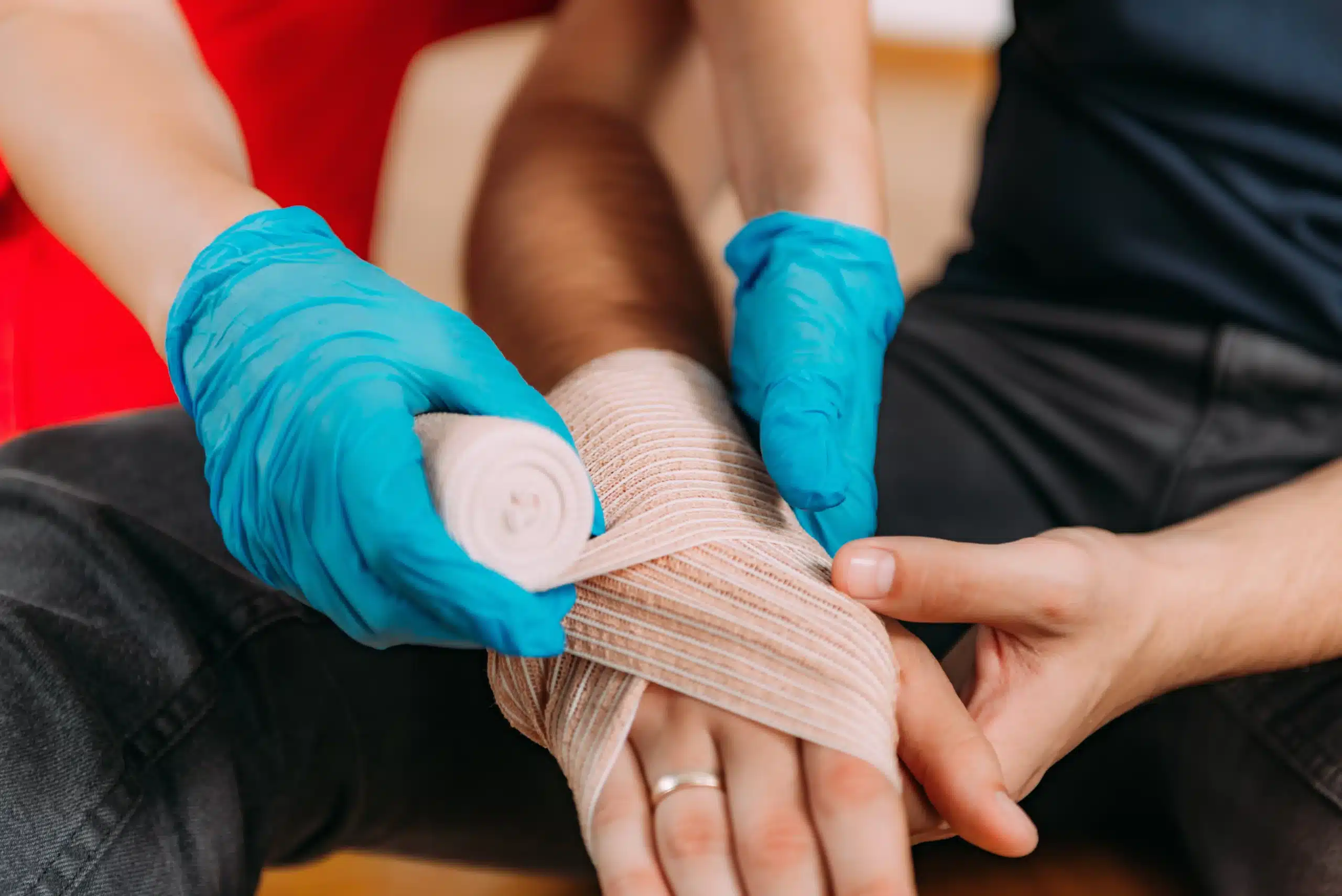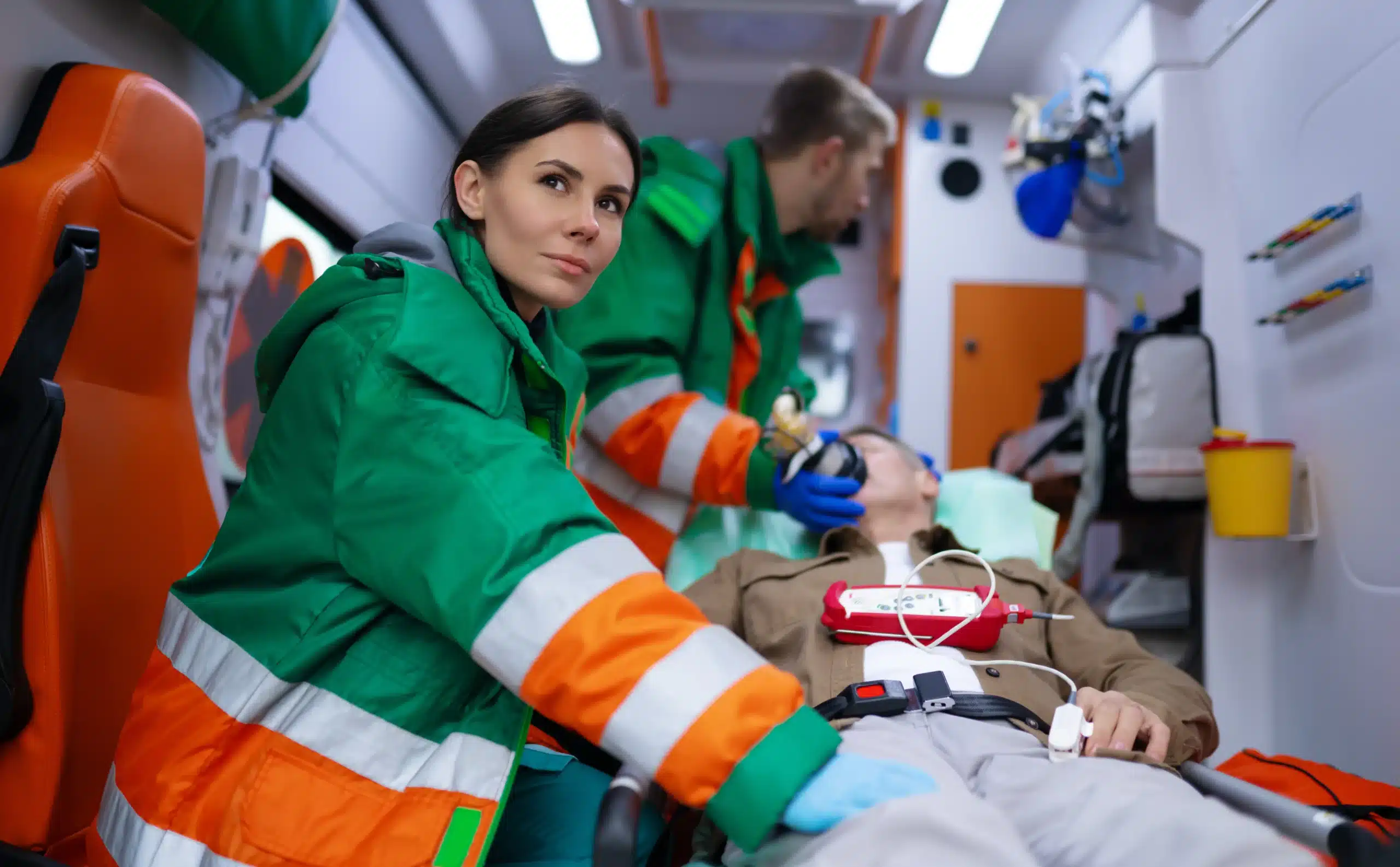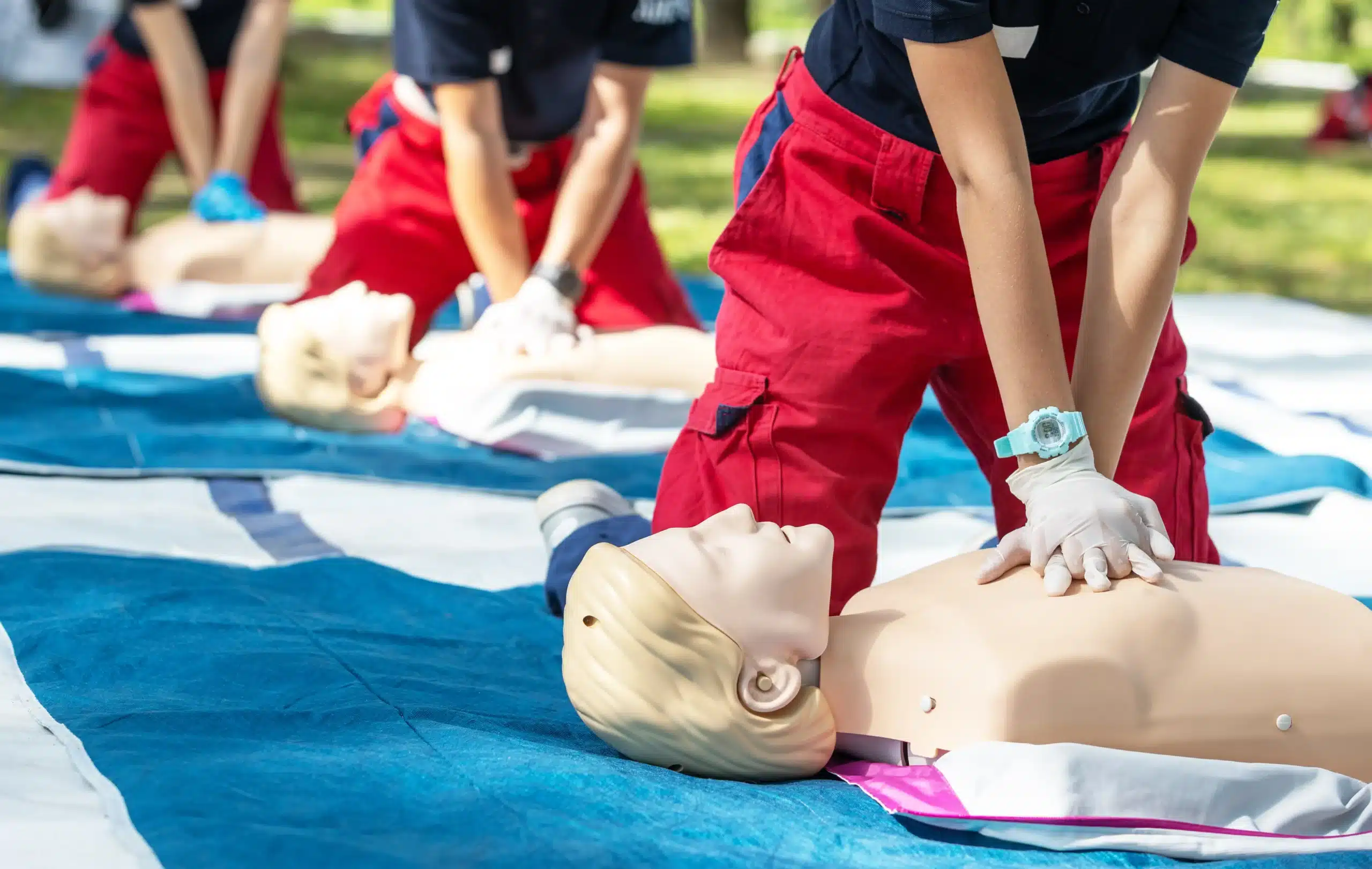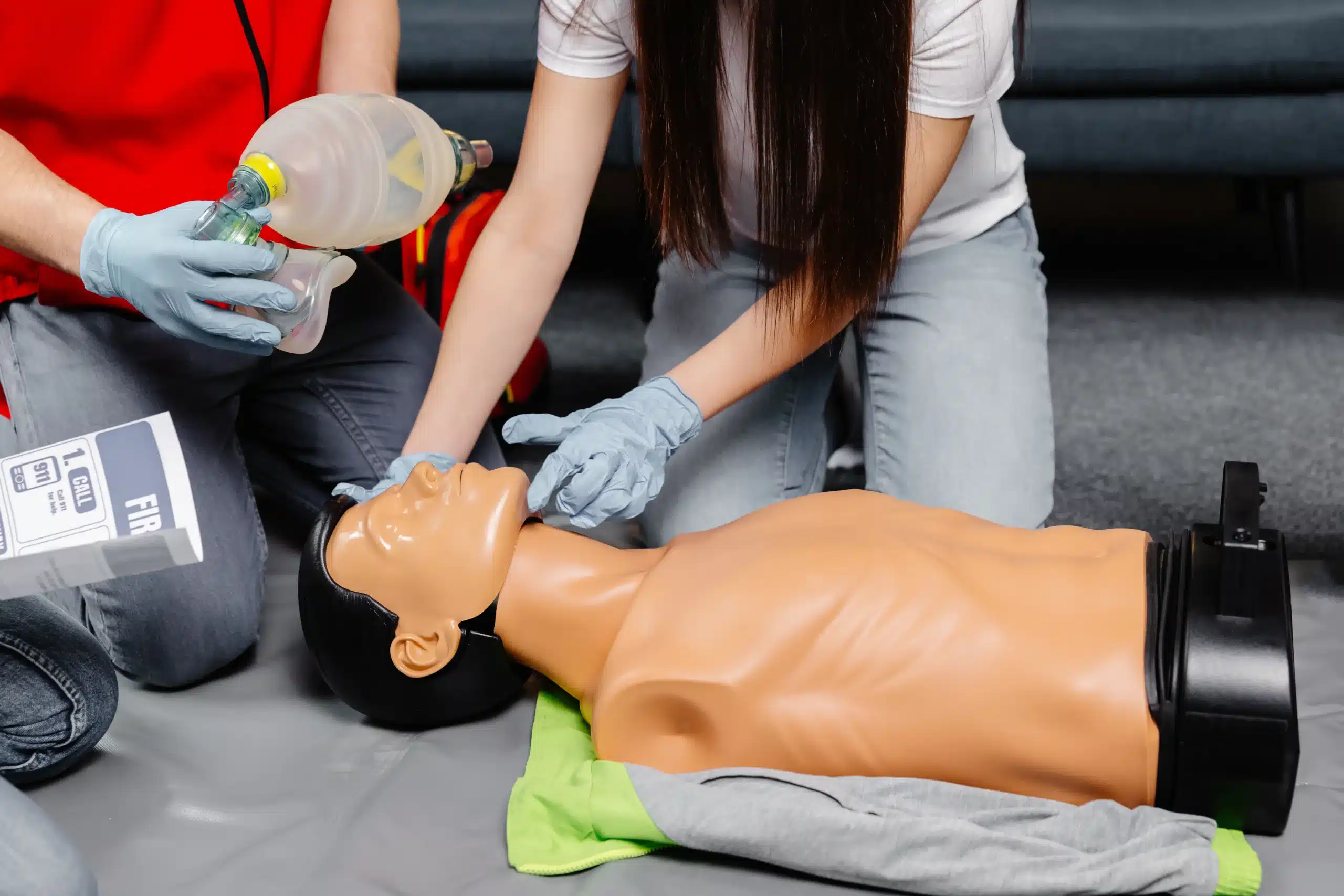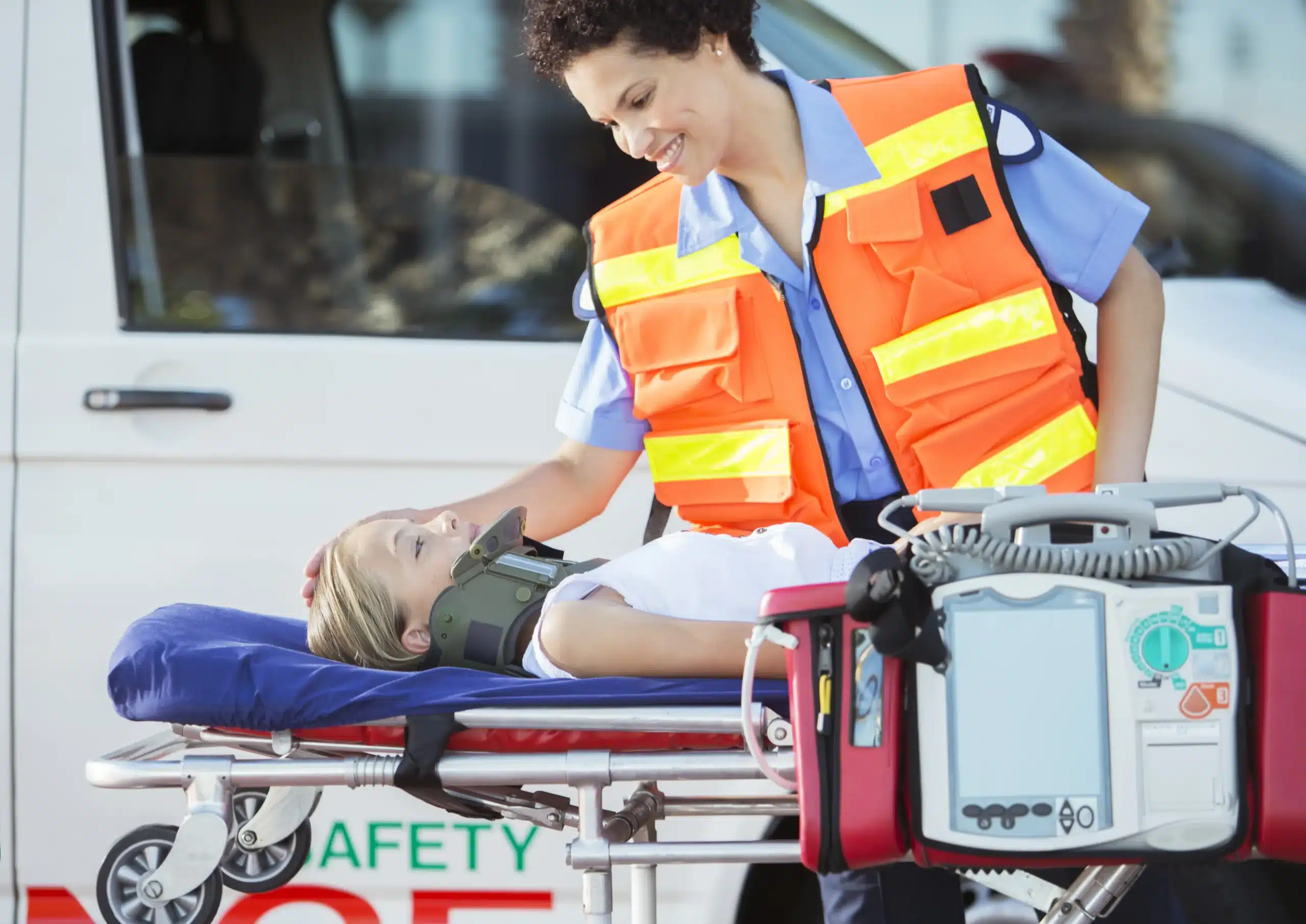Learning CPR is easier than ever, thanks to the rise of online CPR classes in Clovis. These courses offer a flexible and convenient way to gain essential life-saving skills, fitting seamlessly into even the busiest schedules. But with so many options available, how do you choose the right one? This guide breaks down everything you need to know about online CPR classes in Clovis, from understanding different course types and certifications to navigating costs and debunking common misconceptions. We’ll also explore the benefits and drawbacks of online learning, the importance of hands-on practice, and how to ensure your certification meets the necessary requirements.
Key Takeaways
- Online CPR training offers flexibility and convenience: Learn at your own pace from anywhere with internet access, then schedule an in-person skills session to complete your certification.
- Various CPR certifications cater to different needs: Choose the right course level, such as BLS, ACLS, PALS, or First Aid, based on your professional goals and desired skill set. AHA certification is a widely recognized standard.
- Combine online learning with hands-on practice: Look for hybrid courses that blend online modules with in-person skills sessions for the most effective learning experience. This approach builds both theoretical knowledge and practical, life-saving skills.
What are Online CPR Classes in Clovis?
Online CPR classes in Clovis offer a flexible way to learn life-saving skills. These courses often blend online learning with in-person skills practice, letting you study the theory at your own speed before demonstrating your skills to an instructor. This hybrid approach works well for busy professionals and anyone with a packed schedule. You can complete the coursework from anywhere with internet access, fitting it around your other commitments.
CPR training in Clovis covers essential topics like Advanced Cardiac Life Support (ACLS), Pediatric Advanced Life Support (PALS), Basic Life Support (BLS), standard CPR, and First Aid. This comprehensive training prepares you for various emergencies, giving you the confidence to act quickly and effectively. Whether you’re a healthcare provider, a teacher, or simply someone who wants to be prepared, these courses provide valuable, potentially life-saving knowledge. The online portion typically includes interactive modules covering the latest CPR guidelines and techniques. After completing the online portion, you’ll schedule an in-person skills session to practice and demonstrate what you’ve learned.
Top Online CPR Class Providers in Clovis
Finding the right CPR certification class can feel overwhelming with so many options. To help you narrow your search, we’ve compiled a list of reputable providers offering online CPR classes in Clovis. Remember to verify all course details and pricing directly with the provider before registering.
Fresno CPR Classes
Fresno CPR Classes offers a variety of American Heart Association (AHA) certified courses, including CPR and First Aid. They cater to both healthcare professionals and the general public, with a focus on high-quality, comprehensive training. Their AHA certifications are widely accepted in healthcare settings. Fresno CPR Classes also provides group discounts and utilizes a user-friendly online platform. For those seeking other certifications, they also offer RQI classes. Check their website for the latest schedule and to learn more about their low price guarantee.
American Red Cross
The American Red Cross is a trusted name in emergency preparedness, offering accessible online CPR training that covers essential life-saving skills. Their nationally recognized certification makes them a solid option for anyone seeking CPR training in Clovis. Visit their website for course schedules and availability.
Clovis Community College
For a convenient and affordable option, consider Clovis Community College’s CPR certification course. This four-hour course provides a digital CPR card within one to two weeks of completion, making it a practical choice for those seeking quick, cost-effective certification.
Heart Link CPR
Heart Link CPR offers a range of CPR and First Aid training options, including online courses. They serve both healthcare providers and the general public, emphasizing practical skills and knowledge. Explore their course catalog and registration information on their website.
ProTrainings
ProTrainings provides flexible online CPR and First Aid courses for individuals and organizations. Their courses often incorporate hands-on skills testing to complement online learning. Visit their website to discover more about their programs and resources.
Online CPR Course Types and Certifications
Understanding the different types of online CPR courses and certifications available is crucial for choosing the right training. This section breaks down the various options, from fully online to hybrid learning, and the different certification levels.
Fully Online vs. Hybrid Courses
Online CPR courses offer flexibility, allowing you to learn at your own pace and location. Some courses are fully online, delivering all content virtually. However, certifications requiring hands-on skills, like those needed for OSHA compliance, require a hybrid approach. Hybrid courses combine online learning with in-person skills sessions, ensuring you gain both theoretical knowledge and practical experience. Fresno CPR Classes offers a variety of course formats. Check our website for details on available CPR classes.
Course Levels: BLS, ACLS, PALS, First Aid
CPR training is offered at different levels to meet specific professional and personal needs.
-
Basic Life Support (BLS): This course covers CPR fundamentals for adults, children, and infants, including responding to breathing and cardiac emergencies. It’s suitable for healthcare providers and anyone interested in learning essential life-saving skills. Learn more about our BLS certification.
-
Advanced Cardiovascular Life Support (ACLS): Designed for healthcare professionals, ACLS training builds upon BLS skills, focusing on advanced life support techniques for adults experiencing cardiac arrest and other cardiovascular emergencies.
-
Pediatric Advanced Life Support (PALS): Similar to ACLS, PALS training equips healthcare providers with the skills to manage pediatric emergencies.
-
First Aid: Often paired with CPR training, First Aid courses teach you how to respond to various medical emergencies, such as injuries, allergic reactions, and choking.
American Heart Association Certifications
The American Heart Association (AHA) is a leading authority in CPR and emergency cardiovascular care. AHA certifications are widely recognized by healthcare organizations and employers. Fresno CPR Classes offers AHA-certified courses, ensuring your training meets the highest standards. These certifications are often considered the gold standard for CPR training, giving you credibility and confidence in emergencies. For more information on our affordable training, see our low price guarantee.
Online CPR Class Costs and Value
Understanding CPR class costs in Clovis helps you find the right course for your budget. While online courses offer flexibility, their pricing often aligns with in-person options, varying based on the certification level. Let’s break down the typical costs associated with online CPR training.
Pricing by Course Level
CPR class pricing typically depends on the certification level. Basic Life Support (BLS certification) courses often range from $70 to $90, covering online instruction, skills testing, and your certification card. More advanced certifications like Advanced Cardiovascular Life Support (ACLS) and Pediatric Advanced Life Support (PALS) usually cost more due to the specialized training involved. Locally, options like Clovis Adult Education and Clovis Community College offer in-person CPR courses with competitive pricing, providing a helpful benchmark for online alternatives. For example, Clovis Adult Education offers a beginner CPR course for $80, while Clovis Community College provides CPR certification for $40. These in-person options can be useful if you prefer a traditional classroom setting.
Additional Fees & Materials
Look out for potential extra costs beyond the course fee. Some providers might have separate charges for study materials, physical textbooks, or certification card processing. While many providers, including Clovis Adult Education and Clovis Community College, offer digital certificates or cards, confirming what’s included in the quoted price and inquiring about any potential additional fees upfront is always wise. This allows you to accurately compare the total cost of different online CPR courses.
Group Discounts & Promotions
If you’re organizing training for a group, like workplace colleagues or a community organization, explore group discounts. Many CPR training providers offer reduced rates for group registrations. Fresno CPR Classes specializes in group discounts, making it a cost-effective choice for businesses and organizations in the Fresno, Clovis, and Madera areas. Some providers, like Central Valley Medical Education, even offer on-site training sessions at your workplace, simplifying logistics and potentially lowering the per-person cost. Contact providers directly to discuss group rates and customized training options.
What to Expect in an Online CPR Class
Online CPR classes offer a convenient way to learn life-saving skills, but it’s helpful to know what the process entails before you enroll. This section breaks down the typical structure, materials, assessments, and equipment used in these courses.
Course Structure & Duration
Online CPR courses blend online learning with in-person skills practice. The online portion allows you to learn at your own pace, often through a combination of videos, interactive exercises, and downloadable resources. This flexible format makes it easier to fit CPR training into a busy schedule. As highlighted by Clovis CPR Classes, these HeartCode Complete courses are especially useful for professionals juggling multiple commitments. The online portion typically ranges from 1.5 to 3 hours, depending on the specific course.
Learning Materials & Resources
High-quality online CPR classes provide comprehensive learning materials designed to prepare you for real-life emergencies. Expect access to videos demonstrating proper CPR techniques, printable guides summarizing key steps, and interactive quizzes to test your knowledge. These resources aim to equip you with both the skills and confidence to respond effectively in a crisis. Clovis CPR Classes offers a good example of the type of training materials you might encounter.
Assessments & Skills Testing
While the online modules provide foundational knowledge, demonstrating practical skills is crucial for CPR certification. Most online CPR courses require an in-person skills test, typically conducted at a designated training center or with an authorized instructor. This hands-on evaluation ensures you can perform CPR correctly and confidently. For example, the online BLS course through Clovis CPR Classes includes the online portion, skills testing, and your certification card.
Using Voice Activated Manikins
Hands-on practice often involves voice-activated manikins, which provide real-time feedback on your compressions and breaths. These sophisticated tools enhance the learning experience by simulating a realistic emergency scenario and helping you refine your technique. This combination of online learning and practical application with voice-activated manikins ensures you develop the muscle memory and confidence needed to perform CPR effectively. You can learn more about these courses through Clovis CPR Classes.
Benefits and Drawbacks of Online CPR Classes
Deciding between online and in-person CPR training? Both have their pros and cons. Understanding these will help you choose the best fit for your schedule and learning style.
Flexibility & Convenience
Online CPR classes offer unparalleled flexibility. Learn essential, life-saving skills from anywhere with an internet connection, fitting your training around work, family, or other commitments. Many online programs, like our American Heart Association BLS course, offer a range of courses, including ACLS, PALS, and First Aid, all from the comfort of your home. This flexibility is especially helpful for busy professionals and those with unpredictable schedules.
Self-Paced Learning
Forget rigid classroom schedules. Online CPR training often allows you to learn at your own speed. Need to review a particular section? Rewind and repeat. Grasping concepts quickly? Move ahead at your own pace. This self-directed approach can be a real advantage. For example, our online BLS course can be completed in as little as 1.5 hours, letting you earn your certification efficiently. Check out our RQI classes for more self-paced learning options.
Hands-On Practice Considerations
While online courses offer convenience and flexibility, it’s important to understand the limitations. Online-only options typically don’t include the hands-on practice component required for some certifications, like those required by OSHA. This is because demonstrating skills to a certified instructor in person is a crucial part of these programs. If your workplace requires an OSHA certification, a hybrid course or a fully in-person class might be a better choice. Contact us to discuss your specific certification needs.
Accreditation & Employer Recognition
When choosing a CPR course, accreditation matters. Look for courses that offer certification from reputable organizations like the American Heart Association. These certifications are widely recognized by healthcare employers and are often considered the gold standard. Fresno CPR Classes offers AHA-certified courses, ensuring your certification meets the highest standards. We also offer a low price guarantee, so you can get the best training without breaking the bank. If you’re planning to use your CPR training for employment, check with your employer or licensing board to confirm the required certifications. For group training, we offer discounts to make high-quality training accessible.
Choose the Right Online CPR Class
Finding the right online CPR class means considering a few key factors to ensure it meets your specific needs and learning style. It’s more than just getting certified; it’s about gaining the confidence and skills to potentially save a life.
Course Content & Specializations
First, consider your goals. Are you a healthcare professional needing to renew your ACLS certification? Or are you a parent wanting to learn basic CPR and First Aid for infants and children? Different courses offer different specializations. Fresno CPR Classes offers a range of American Heart Association certifications, from BLS for healthcare providers to CPR and First Aid for the community. Look for courses that align with your current knowledge and goals. Some providers offer blended learning, combining online modules with in-person skills sessions, which can be particularly helpful for mastering the practical aspects of CPR. Fresno CPR Classes offers a variety of courses and certifications to suit different needs.
Support & Instructor Availability
Online learning shouldn’t mean learning alone. Reliable support and instructor availability are essential. Check if the course offers instructor interaction, such as Q&A sessions or email support. Direct access to instructors can make a real difference in your understanding and confidence. Consider whether having readily available support is important to your learning process. Contact Fresno CPR Classes to learn more about their instructor support and availability.
Reviews & Participant Feedback
Before choosing a course, see what other students are saying. Online reviews offer valuable insights into the quality of materials, instruction, and the overall learning experience. Look for comments about the clarity of the materials, the responsiveness of instructors, and the flexibility of the learning platform. Real-world feedback can help you choose a course that fits your learning style and provides the support you need. Reading reviews can give you a better sense of what to expect from a specific course provider.
Register & Start Your Online CPR Training
Getting started with online CPR training is straightforward. These three steps will get you on your way to becoming certified.
Select a Provider
First, choose a training provider that aligns with your needs and offers certifications recognized by healthcare organizations. For most healthcare providers, American Heart Association (AHA) certifications are the gold standard. Ensure the provider you select offers AHA-compliant courses if this applies to you. Consider factors like cost, course format (fully online or blended), and schedule flexibility when making your decision. Reading reviews and checking a provider’s reputation can also offer helpful information. Fresno CPR Classes is committed to providing low prices and excellent customer service. Contact us if you have questions.
Enroll in a Course
Once you’ve chosen a provider, explore the courses they offer. Providers like Fresno CPR Classes offer a range of courses, from Basic Life Support (BLS) for healthcare providers to CPR and First Aid for community members. Select the course that best suits your requirements. You’ll typically find course descriptions and schedules on the provider’s website. If you’re unsure which course is right for you, reach out to the provider directly—they can help guide you. For larger groups, inquire about group discounts to make training more affordable.
Access Course Materials
After enrolling, you’ll gain access to the course materials. This often includes online modules, videos, and downloadable resources. Some courses, like our RQI courses, offer innovative learning experiences. Familiarize yourself with the course platform and how to access support if needed. Many online courses are self-paced, allowing you to learn at your own speed. However, some courses may have deadlines for completion, so be sure to check the course requirements.
Maintain Your CPR Certification
Keeping your CPR skills sharp is essential for responding effectively in emergencies. This section covers renewal processes and the importance of continuing education to help you stay prepared.
Renewal Requirements & Processes
CPR certifications usually expire after two years. To maintain your certification, you’ll need to take a renewal course. Fresno CPR Classes offers American Heart Association BLS renewal courses designed for those already holding a valid CPR card. Check with your certifying organization for specific renewal requirements, as processes can vary. For example, some organizations, like Clovis Adult Education, require in-person registration for their CPR renewal courses. Confirm the necessary steps and required documentation, such as your current CPR card, before attending a renewal class. Knowing these details beforehand makes the renewal process smoother. Fresno CPR Classes makes staying current easy with their commitment to low prices and convenient class schedules.
Continuing Education
Even with a current certification, continuing education is key to maintaining your CPR skills. The American Red Cross emphasizes the importance of staying up-to-date with the latest CPR techniques and guidelines. They offer various learning formats, including in-person and blended learning options. While online-only courses are convenient, in-person training often provides a two-year certification that meets OSHA standards, which may be required for some jobs. Even if your certification has lapsed, don’t hesitate to perform CPR in an emergency. Any attempt to help is better than none. Fresno CPR Classes also offers RQI classes for healthcare providers looking to refresh their resuscitation skills. Prioritizing continuing education builds confidence and equips you to handle emergencies effectively. Contact us today to learn more about how we can help you maintain your life-saving skills.
Common Online CPR Class Misconceptions
It’s easy to get confused by conflicting information about online CPR certification. Let’s clear up some common misconceptions about online CPR training.
Certification Validity Myths
One common misconception is that online-only CPR certifications are universally accepted. However, organizations like OSHA often require hands-on training components. Hard Hat Training clarifies that OSHA does not accept online-only certifications for employees needing CPR training. Similarly, the American Red Cross requires an in-person skills session for a valid two-year certification meeting OSHA and other workplace requirements. So, while online learning offers valuable knowledge, supplement it with in-person skills practice. Check with your employer or regulatory body to confirm their specific requirements. For certifications accepted in Fresno, Clovis, and Madera, contact Fresno CPR Classes.
Online Learning Effectiveness
Some question whether online learning can truly prepare someone for a real-life emergency. Research suggests online instruction can be very effective. A study published in PMC showed online learning led to a higher percentage of competent trainees. The study also found online learners often demonstrated better performance in key areas like scene safety, airway opening, and chest compressions. They also reported higher confidence and willingness to perform CPR. This indicates online courses can effectively teach the cognitive aspects of CPR.
Hands-On Skills Importance
While online courses offer flexibility and convenience, hands-on training remains essential. Hard Hat Training emphasizes the crucial role of hands-on training for effective CPR. Developing muscle memory and practicing proper technique on a manikin are vital for responding confidently in emergencies. Many providers, including Clovis CPR Classes, offer hybrid courses that combine online learning with in-person skills sessions. These blended courses provide the best of both worlds: convenient online learning paired with essential hands-on practice. Fresno CPR Classes also offers various courses with hands-on components, including our RQI classes and group discounts. We also offer a low price guarantee on our American Heart Association BLS certification.
Related Articles
- CPR Classes in Fresno: Your Complete Guide – Fresno CPR Classes
- Fresno CPR Classes: Your Complete Guide – Fresno CPR Classes
- American Heart Association Course – CPR Class in Fresno, CA
- CPR & First-Aid Training in Fresno: A Complete Guide – Fresno CPR Classes
- CPR, BLS, ACLS, PALS, & First-aid Classes in Fresno, CA
Frequently Asked Questions
Is online CPR certification enough, or do I need in-person training? It depends on what you need the certification for. Online courses are great for learning the material at your own pace, but many organizations, including OSHA, require hands-on skills testing with a certified instructor. A blended course, combining online learning with in-person skills practice, often satisfies these requirements. Check with your employer or licensing board to confirm their specific requirements.
How much do online CPR classes typically cost in Clovis? Costs vary depending on the provider and the level of certification. Basic CPR classes usually range from $70 to $90. More advanced certifications, like ACLS and PALS, typically cost more. Look for providers offering group discounts if you’re training multiple people. It’s always a good idea to compare prices and check for any additional fees before registering.
What if my CPR certification has expired? You’ll need to take a renewal course. Most certifications are valid for two years. Check with your certifying organization or training provider for their specific renewal process and requirements. Even if your certification has lapsed, remember that any attempt to provide CPR in an emergency is better than no attempt at all.
How long does it take to complete an online CPR class? The online portion of a blended learning course typically takes between 1.5 and 3 hours. This can vary depending on the specific course and your learning pace. Add to that the time required for the in-person skills testing session, which usually takes a few hours.
What kind of CPR certification should I get? The best certification for you depends on your specific needs. Healthcare providers typically require BLS, ACLS, or PALS certification from the American Heart Association. If you’re learning CPR for personal knowledge or community involvement, a basic CPR and First Aid certification might be sufficient. Consider your goals and check with your employer or licensing board to determine the right certification level.
